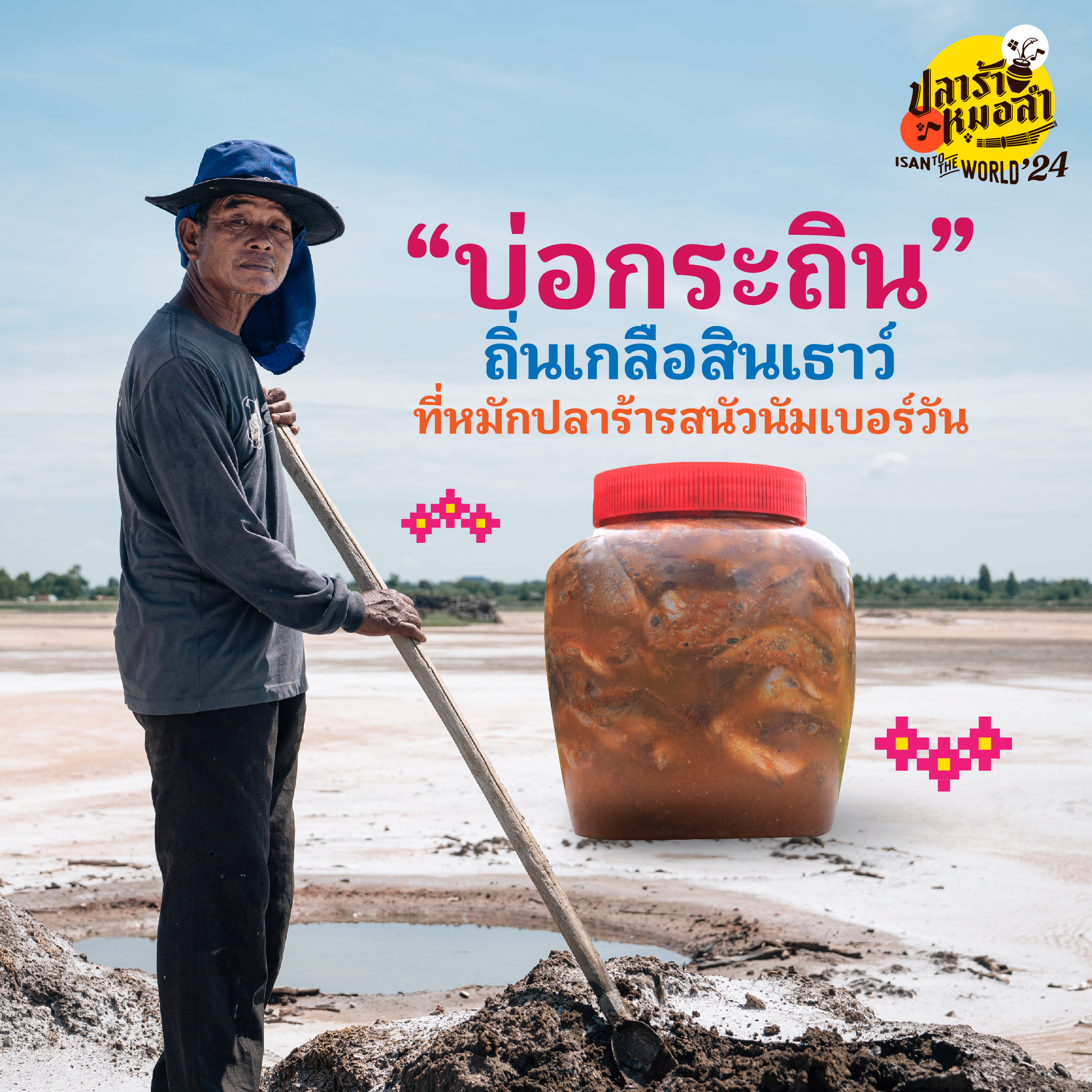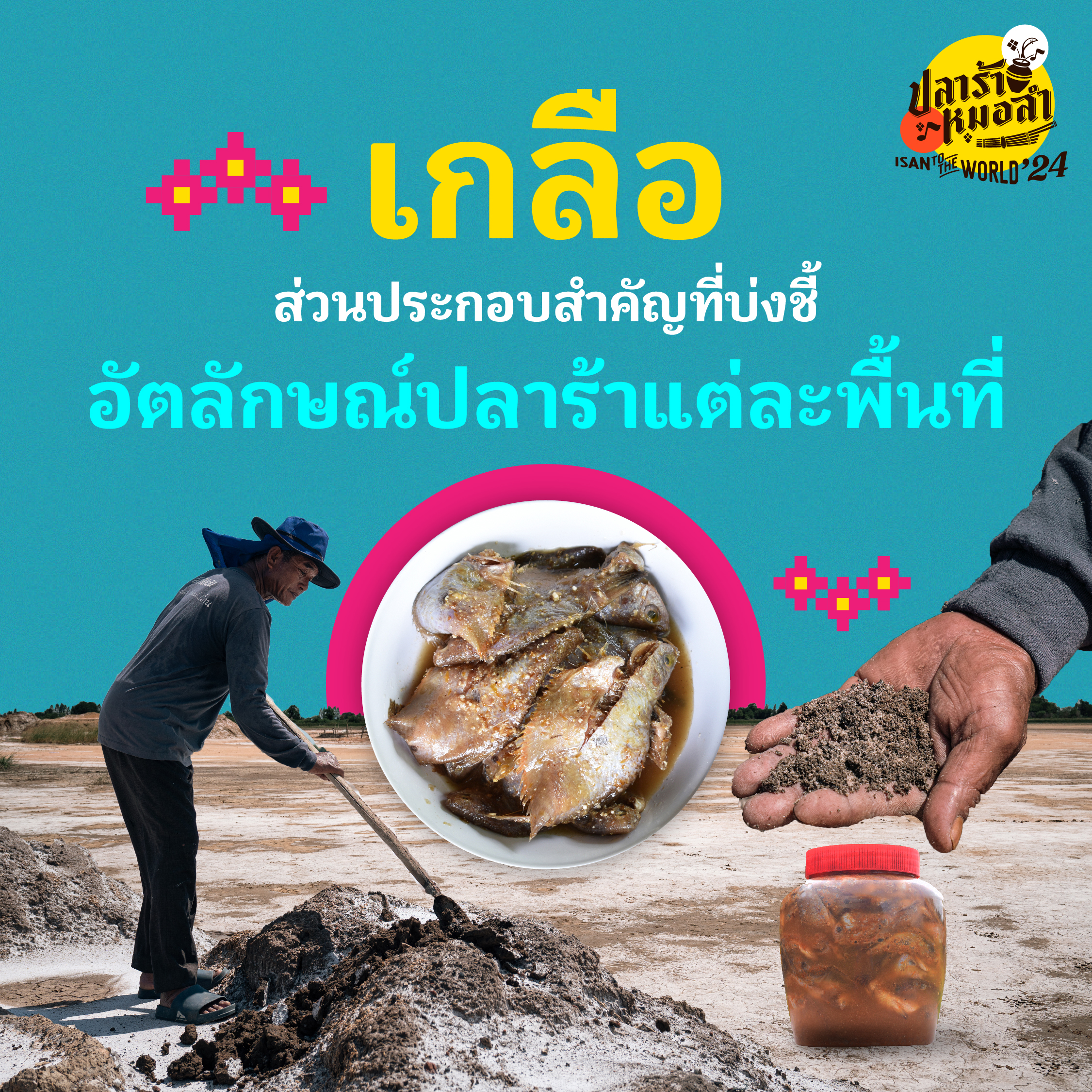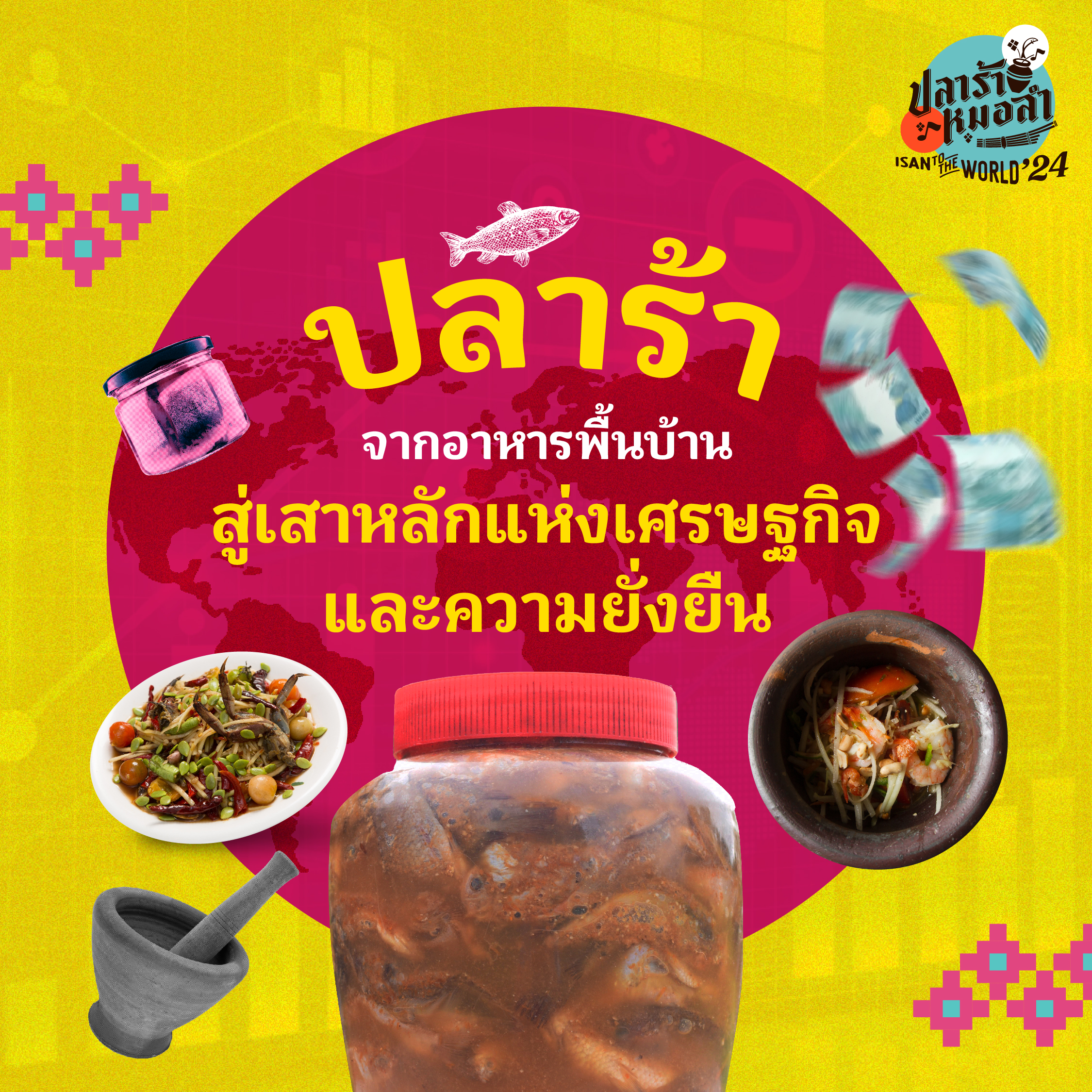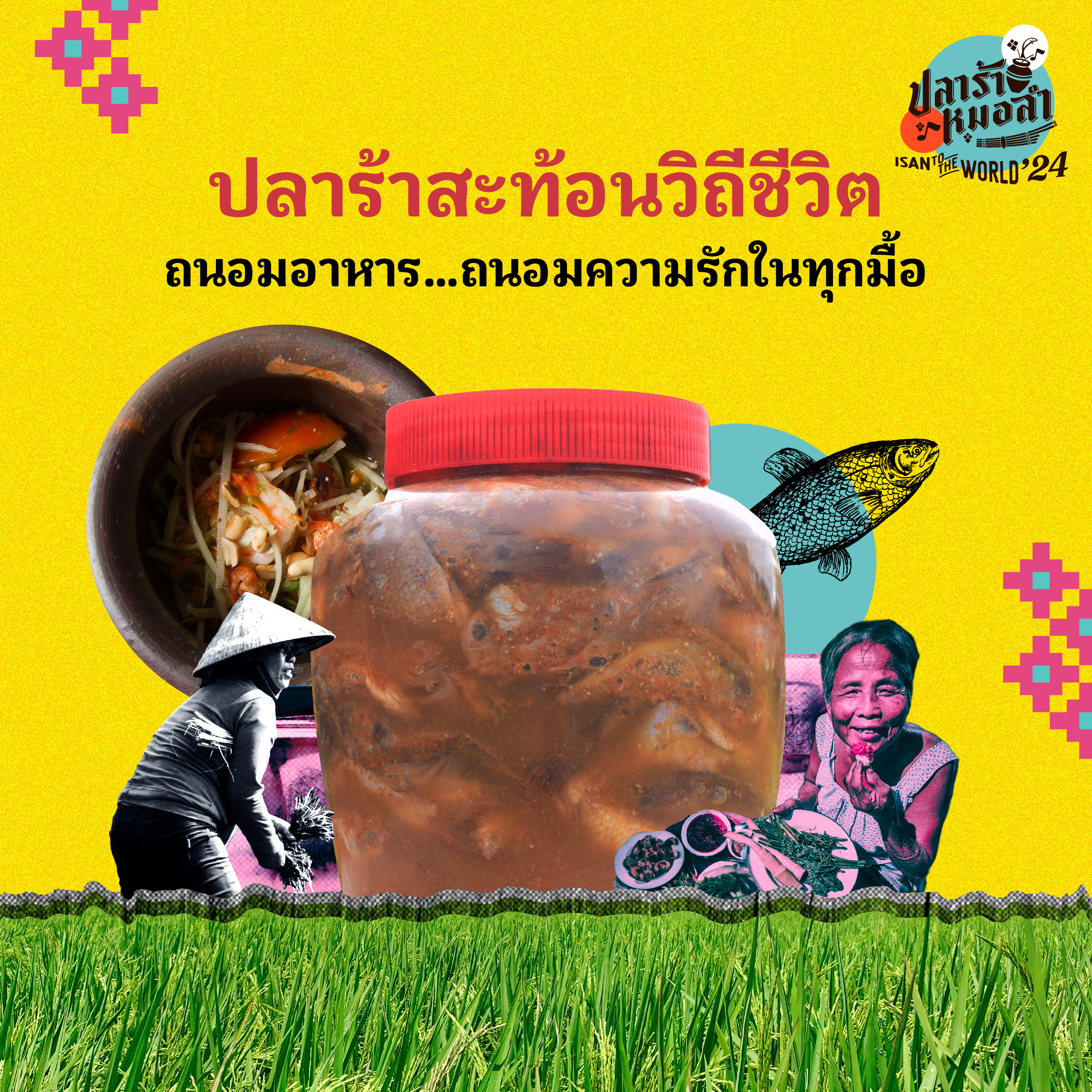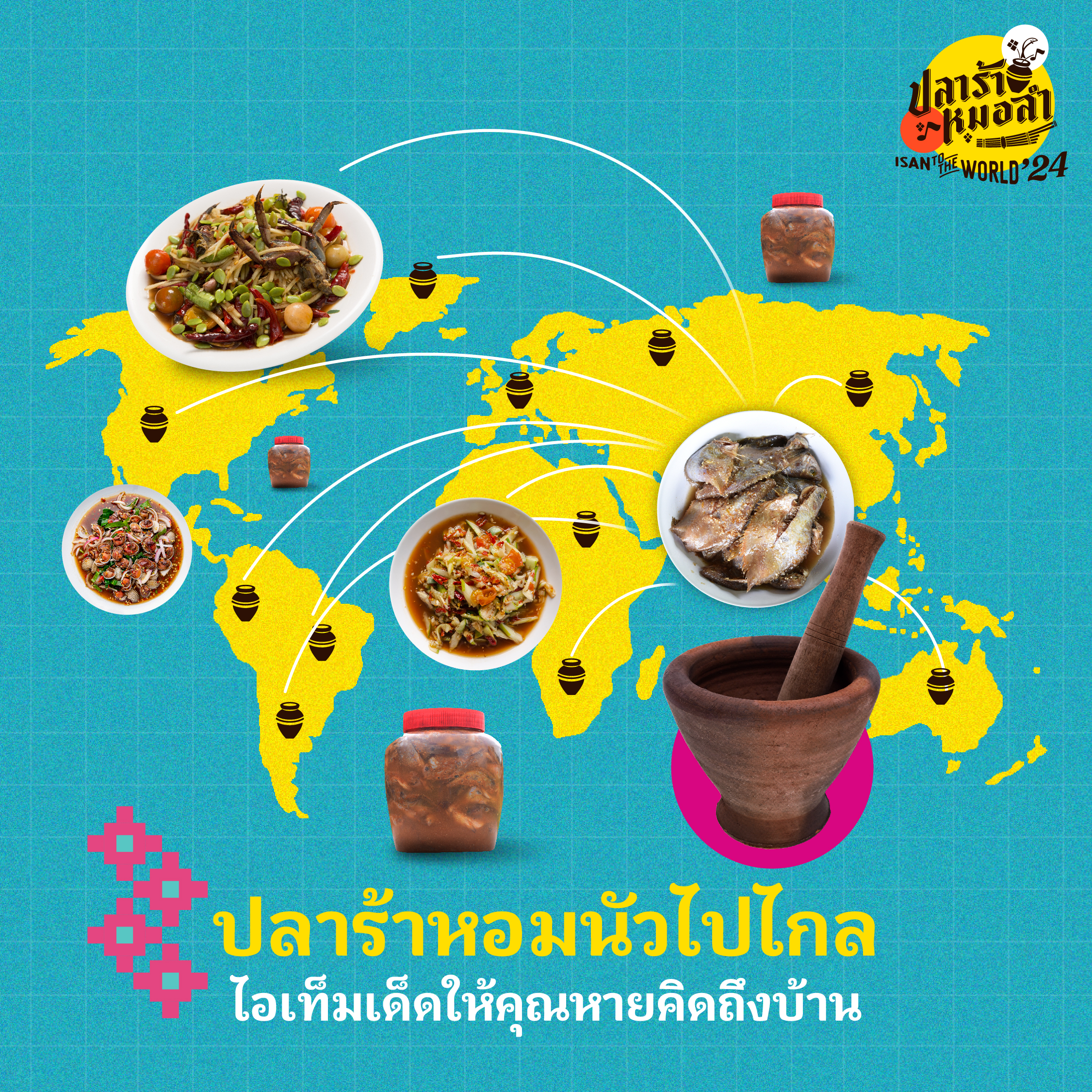The ultimate flavorful fermented fish couldn’t exist without the high-quality salt passed down through generations. The salt, produced in limited quantities each year, sells out annually and is considered a rare item. It’s a collaborative seasonal production, preserved until the present day by “Pha Kaeo and Jarunan Chamnanmareung,” who carry on the wisdom of the land known as “Bo Krathin,” a Sin Thao salt production site in Ban Phai District, Khon Kaen Province. Bo Krathin salt is a valued ingredient among fermented fish producers. If you want delicious, well-textured fermented fish with intact fish pieces, Bo Krathin salt is the way to go. The salt is pre-boiled and does not need to be roasted again, maintaining the quality of the fermented fish, which has become a viral product in the Isan region since the time of our grandparents.
Pha Kaeo shares, “Salt fields and the Isan people have been intertwined for a long time. We would trade salt for fish. Some families would use it for cooking, while others would add it to coconut milk in desserts or use it in pickled vegetables or fermented fish. I learned from my ancestors, my father’s father. I’m the third generation. We were born into this process. Some people from other regions come to see the production and love it. Those who marry into the family see the salt boiling process and realize they can trade it for rice and money, so they work hard at it.”
The salt-making process at Bo Krathin takes place annually between December and February. The challenge lies in spending the entire day feeding wood into the fire to keep boiling the salt. “We have to be there all the time, bringing food and water to watch over the process. It takes 2-3 hours per pot. We prepare by setting up the kiln a week in advance to dry it, then make clay trenches filled with husks, place hoses in the wells, and bring in ‘Pohn’ soil for fermentation. The pots are 4.5 feet long and hold 36 liters of water per pot, producing 8 kilograms of salt per pot when boiled dry. Normally, I sell the salt for 30 baht per kilogram, but we also trade it for rice with others. Each household can gather 50-60 sacks. If they want to trade, we trade. If they want to buy, we sell, living simply with kindness at the heart.”
The fame of Bo Krathin salt comes from its crucial role in making fermented fish. If the salt isn’t right, the fish will rot. If used in the right amount, the fish will stay firm and taste delicious. Bo Krathin salt dissolves quickly in water, and many people say that when you use it in cooking, you might forget about fish sauce altogether because it’s that flavorful.
“Some of the famous fermented fish in Khon Kaen, like from Kaeng Lawa, is well-known among Khon Kaen University students who return after graduating. They organize tours, and some villages make sun-dried fermented fish. They ask where the salt comes from, and it’s from Bo Krathin. So, it became more talked about over time. When you use Bo Krathin salt to ferment fish, the fish stays firm, with pinkish-red meat, a unique flavor that sets it apart from others.”
The challenges faced today by the Bo Krathin community include environmental changes, fluctuating weather conditions, lack of firewood, and the scarcity of soil-fermenting water. “I live with the salt wells. Some people want to harm the environment. If the clay doesn’t dry, the salt won’t appear. I see this as a lesson: don’t mistreat nature, because nature never harms anyone.”
“I’m proud. I was born into this, making salt with my parents since I was a child. I aspire for what I do to shine. Back then, my parents would boil salt in cans for 5 baht, making 10 kilograms. Nowadays, I sell 18-19 liters. If I sell by kilogram, it’s 300 baht. I’m proud of the chance I had to lecture at Khon Kaen University almost ten years ago. Even today, Japanese professors and their students come to see. This is what I’m proud of. I make enough to get by, as long as there’s salt. Usually, I sell out before others because I ship everywhere. Even hotels in Chiang Mai call to order. Some people, whose relatives have cancer and don’t want fish sauce, ask for salt, and I send it to them.”
“In the past, I’ve been a speaker and a guide. These days, organizations and tourists come to see how we produce salt. Hundreds of people from various countries are interested. Even foreigners appreciate it. I hope that people in Thailand will also help preserve the salt at Bo Krathin for future generations.”
#PlaraMorLam24
#ISANToTheWorld
#FermentedFishMolamIsanToTheWorld
4o


